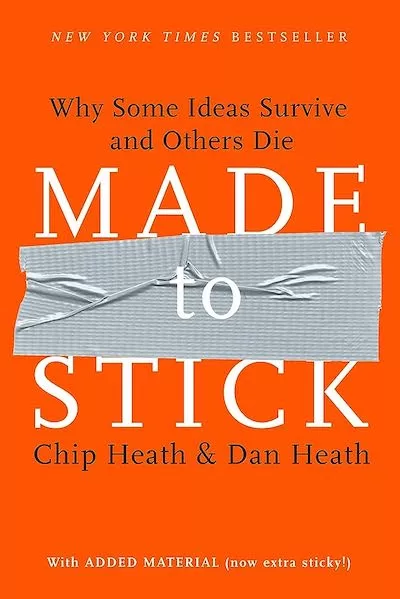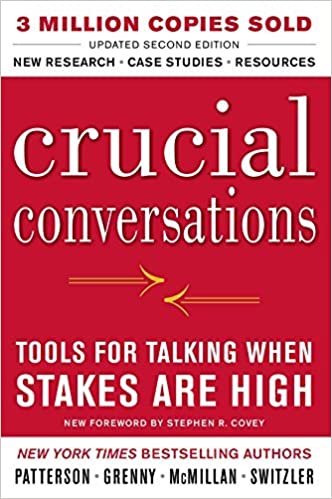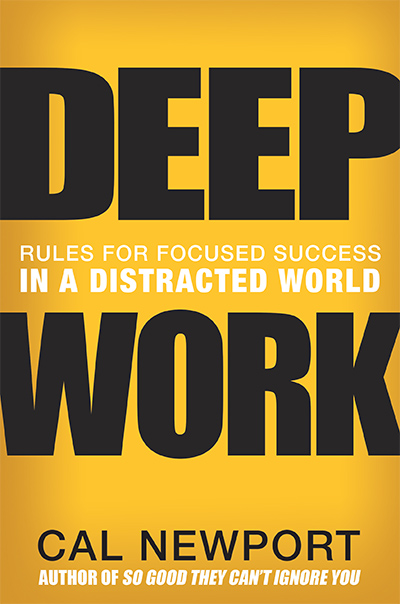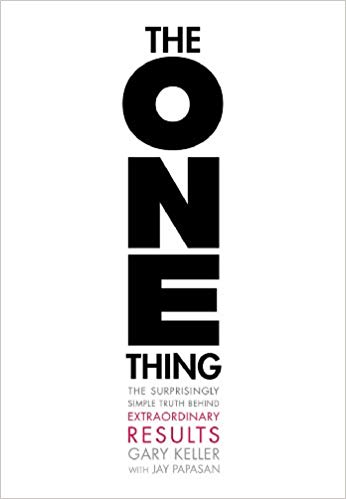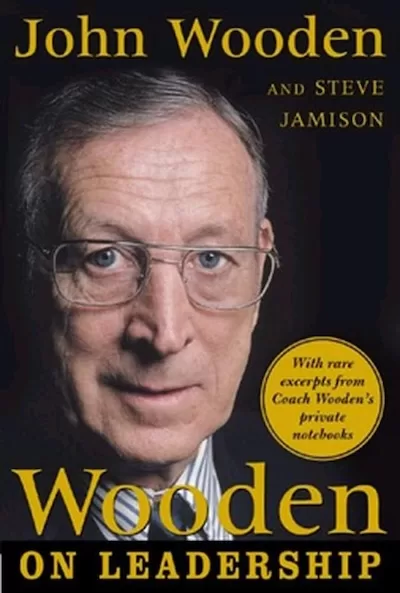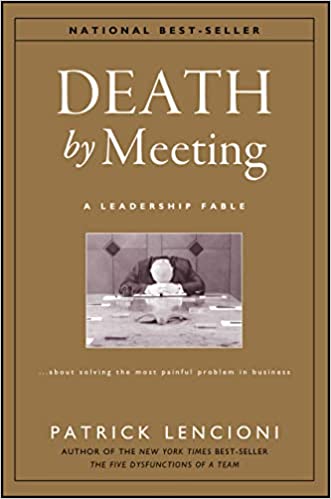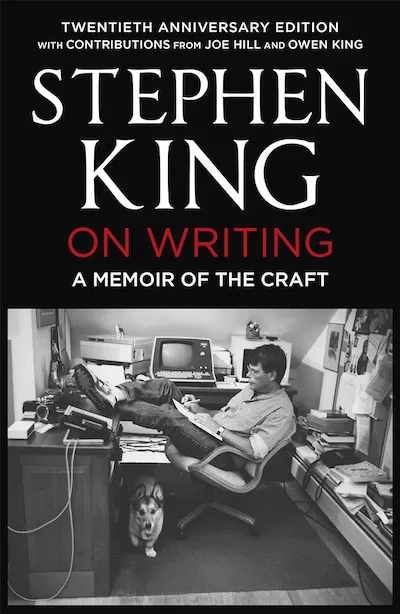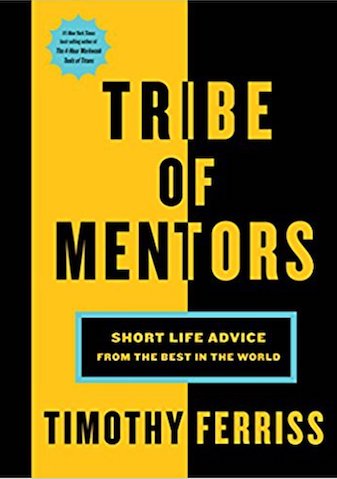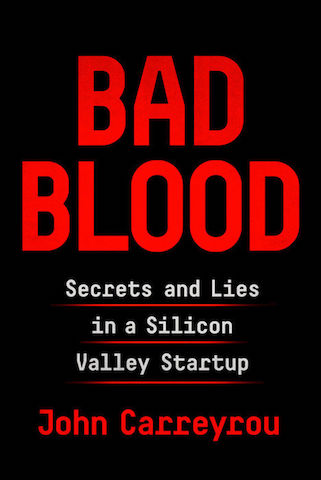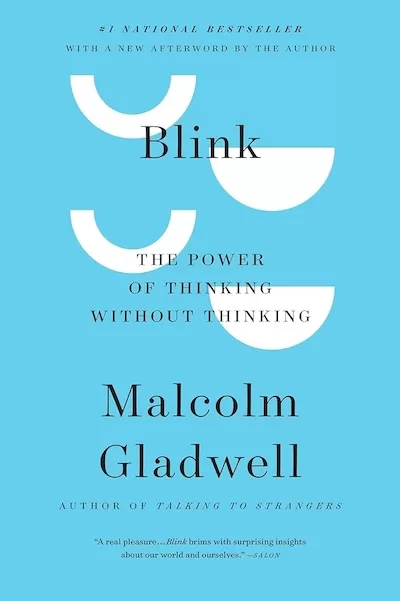These Are My 10 Favorite Nonfiction Books from the 1,000+ Books I’ve Read in My Life

I loved reading as a kid, but I felt like the love of reading was bashed out of me in junior high and high school from required reading, comprehension checks, and a flawed perspective that the goal of reading was to get a good grade on a quiz rather than to learn something new.
Then, in my senior year of college, I picked up Malcolm Gladwell's book Blink, which was not only one of the first "non-required" books I had read in years but also the first nonfiction book I had read as an adult.
My world opened up while reading that book, and I immediately fell in love with nonfiction storytelling. Now I'm a huge nonfiction nerd who gobbles up the newest titles from authors like Tim Ferriss, Cal Newport, and Michael Lewis every time they drop a new book.
From everything I’ve read, here are my all-time favorite nonfiction titles in order.
I’ve included an affiliate link from Bookshop.org for each book. (If you purchase one of them, you’ll support me and local bookstores. Win-win!)
1. Made to Stick by Chip & Dan Heath
Summary: Chip and Dan Heath provide powerful stories, relevant examples, and instructional workshops that teach how to craft better messages for your audience. They break down what they call the "SUCCESs formula" for helping people remember information: Simple, Unexpected, Concrete, Credible, Emotional, and Stories.
What I Love About It: Made to Stick is the best business book I've ever read. It's one of the most helpful books out there for marketers, teachers, and just about anyone who wants to get an idea into the minds of others.
What Makes It Unique: Powerful storytelling. The authors practice what they preach by showing how to use their communication tactics throughout every chapter.
-> Read my full review & summary of this book here
2. Crucial Conversations by Patterson, Grenny, McMillan, and Switzler
Summary: Feedback is one of those things that is always hard. It's hard to give. It's hard to receive. But the authors share a framework for approaching tough conversations from a position of truly seeking to understand the other person and working together to find common ground.
What Makes It Unique: The book includes tons of examples of specific language you can use to share difficult messages.
Summary: Newport articulates the importance of "deep work" and offers guidelines for how to manage "shallow work" (responding to email, slack, etc.). Deep Work is a playbook for productivity and focus. It's required reading for anyone who wants to resist the tyranny of their email inbox.
What I Love About It: This book has become my productivity gospel. I use its lessons every day at work because it's extremely practical.
What Makes It Unique: Newport is a computer science professor, and you can tell from his writing style. Everything is rational, and each concept stacks nicely upon the next, leading you from Steps 1 to 2 to 3.
Summary: In the world of to-do lists, it's easy to just knock out insignificant work rather than prioritize tasks that will truly move the needle. This book will re-center you on what's most important. Keller and Papasan ask questions like, "What's the ONE Thing you can do this week such that by doing it everything else would be easier or unnecessary?" They offer practical tips for eliminating unnecessary work and ruthlessly prioritizing tasks.
What I Love About It: The ONE Thing changed the way I live and work. It helped me break unproductive habits and recognize many ways in which I was working inefficiently. Now I'm able to prioritize what has to get done each day and focus on those priorities before doing anything else.
What Makes It Unique: This is one of the books I've most gifted to other people, and my friends have also sworn by this book's ability to improve their productivity.
Summary: John Wooden won 10 NCAA basketball championships as the coach of the UCLA Bruins. But his winning record was a by-product of his character, leadership, and love for his students. Wooden believed that his first job was to develop his students into people of character, and his second was to win basketball games. Many of his former students have said they learned more about leadership and integrity in their years under Wooden than at any other time in their lives. This book unpacks Wooden's approach to life and leadership.
What I Love About It: Not only is Wooden on Leadership my favorite leadership book, it's also a great manual for how to define success in your life and career. If the only scoreboard you care about is your bank account or quarterly earnings, you're playing the wrong game.
What Makes It Unique: Most leadership books are about how to get more out of people and make companies more profitable. This one explains how to care for the people who report to you.
6. Death by Meeting by Patrick Lencioni
Summary: Death by Meeting taught me to appreciate meetings for what they can be: powerful tools for discussion, strategy, and decision-making. Lencioni encourages readers to reclaim meetings (rather than hating them) and to use different types, durations, and frequencies of meetings for different things: brainstorming, discussing strategy, executing tactics, etc.
What I Love About It: IMO, this is Lencioni's best book. Any leader can use these lessons to immediately improve the effectiveness of their meetings.
What Makes It Unique: Lencioni is a masterful business storyteller. He's one of the only leadership authors who writes his books in a "fable" format: he tells you a fictional story that is similar to what happens in thousands of businesses every day, then unpacks the story with dozens of applicable business lessons.
Summary: There are a lot of writing advice books, but this one is the best. Not only is King one of the most successful writers on the planet, but he’s also pushed literary boundaries for decades.
What I Love About It: On Writing is part autobiographical, so I learned a lot about the life of my favorite novelist. King tells stories about how he got in trouble for writing creepy stories in school, used publisher rejection slips as motivation, and barely survived getting hit on the side of the road while walking in western Maine.
What Makes It Unique: King uses stories from his childhood and writing career to teach his lessons. Unlike most writing advice books, this one feels more story-driven and conversational.
-> To read Stephen King's top 13 tips from this book, click here.
Summary: Similar to Ferriss’s earlier book Tools of Titans, Tribe of Mentors is packed with life advice from dozens of stars in their respective fields. Each mentor’s advice is fascinating and unique. My favorite segments were from entrepreneur Naval Ravikant, chess champion Maurice Ashley, and poker star Daniel Negreanu.
What I Love About It: Ferriss includes advice from 130+ mentors (many of which he's also interviewed on his podcast), so this book is essentially a "greatest hits" compilation of 130 Ferriss's podcast episodes, back-to-back.
What Makes It Unique: The ratio of good advice per page is way higher than almost any book I've ever read.
Summary: Carreyrou was the WSJ journalist who first broke the story of fraud, lies, and deception at Theranos, the blood-testing company that became a tech darling worth more than $9 billion. Theranos founder and CEO Elizabeth Holmes wooed a lot of admirers and investors while covering up the truth of what was really happening at her company.
What I Love About It: While reporting this story, Carreyrou and his sources were stalked, threatened, and sued…but they persisted. One of my favorite aspects of reading this book was putting myself in the shoes of the whistleblowers to consider how scary this situation would have been for them.
What Makes It Unique: Bad Blood is arguably the fastest-paced nonfiction book I've ever read.
Summary: We're often told to question our gut and take more time to make important decisions, but Gladwell shows that sometimes our snap judgments can be more accurate than our slow decisions. He introduces you to psychologists, athletics coaches, historians, and other random experts whose stories demonstrate the power of "thin-slicing" and intuition.
What I Love About It: As I mentioned in the introduction, this book started it all for me. Reading Blink in college ignited my reading passion, and I'll forever be indebted to Gladwell for that.
What Makes It Unique: Gladwell's storytelling ability is second to none. You'd be hard-pressed to find a more enjoyable nonfiction book.
If you’ve read any of these books — regardless of whether you loved or hated the book — please let me know! It’s always interesting to hear which books resonate with people and which don’t.
Happy reading!
Want to become a powerful learner?
Sign up to get my exclusive
10-page guide for leaders and learners.
